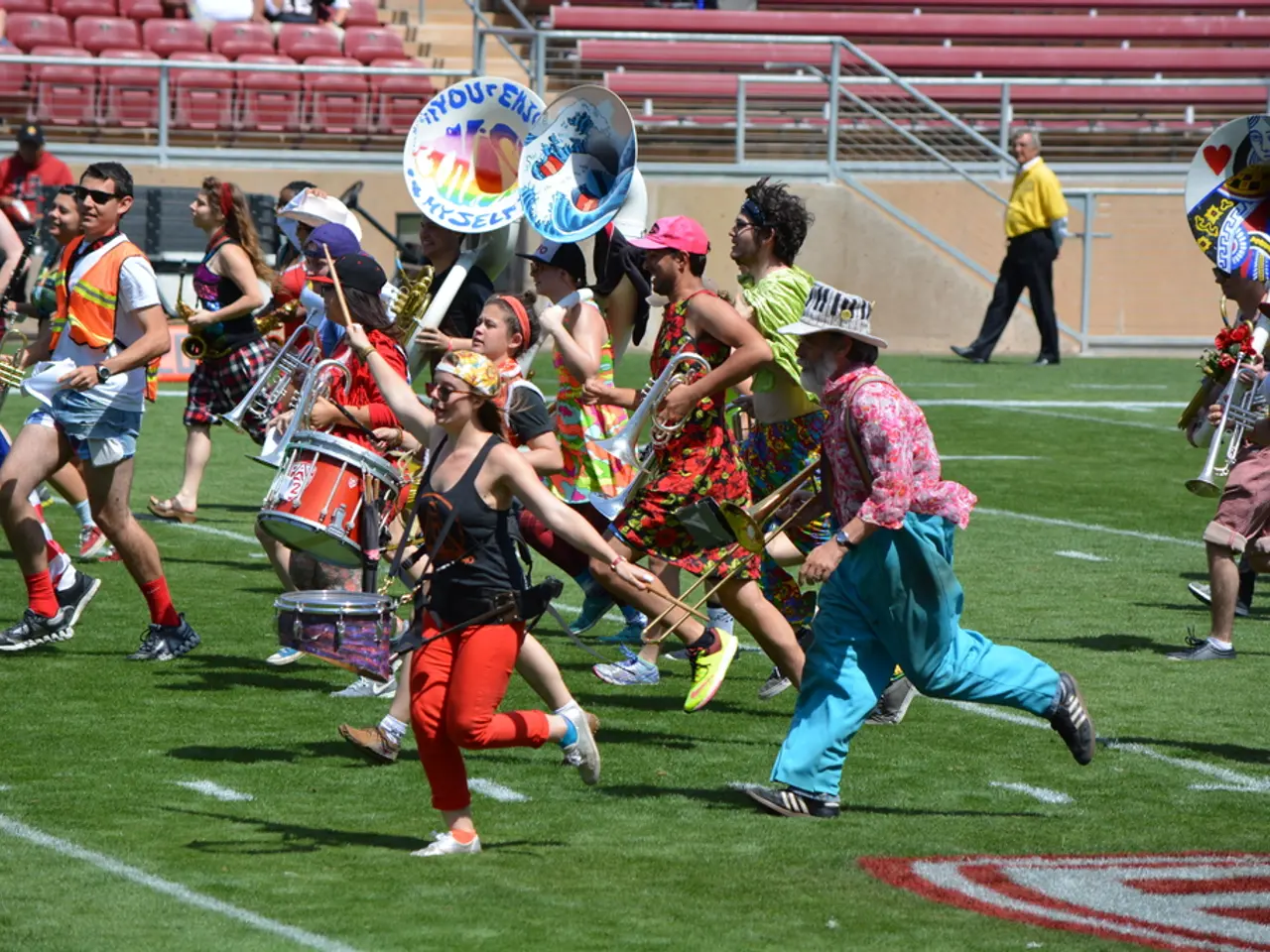Employing Sound as a Psychological Warfare Strategy
Muqata'a, a Palestinian sound artist whose name means "disruption" or "interference," is making waves in the art world with his unique approach to sound. Using a mix of field recordings, sampled music, and electronic beats, Muqata'a's work serves as a powerful form of audio resistance, challenging listeners to confront complex emotions tied to displacement, violence, and identity in Palestinian contexts.
Based between Berlin and Ramallah, Muqata'a's work is deeply rooted in the sounds of his homeland. He incorporates samples from vinyl records and cassette tapes from the region around Palestine, blending traditional Arabic music with dense jungle beats, sub-bass rumbles, and haunting samples. This mixture serves both as a form of protest and as communication with ancestors and unseen spiritual forces, expressing the harsh realities of Palestinian life and the fragmentation of geography and history.
One of Muqata'a's most notable projects is "Tashweesh," a performance and installation project that weaves together sound, music, image, and text. "Tashweesh" uses field recordings, archival materials, singing, soundscapes, and abrupt pauses, creating raw and non-linear performances that explore themes of birth and death, interrupted history, and thwarted attempts at reconstruction.
In 2018, Muqata'a released "Inkanakuntu," an album that does not feature any rap. Instead, he explores the esoteric belief system "Simya" in metaphorical reinterpretation. His latest album, "Kamil Manqus," released in 2021, continues this exploration.
Muqata'a founded the hip-hop collective "Ramallah Underground" in 2002 and is one of the sixteen signature artists invited to the Monheim Triennial. His collaborations, such as "False Vectors" with Basel Abbas and Ruanne Abou-Rahme, showcase traditional Arabic music with electronic soundscapes.
Despite the challenges of living between Berlin and Ramallah and the ongoing situation in Palestine, Muqata'a continues to push boundaries with his work. He collects sounds from military vehicles and checkpoints in the West Bank, using them as samples in his work. Muqata'a plans to release new material on which he will rap again, promising to continue disrupting and provoking with his unique blend of sound and politics.
[1] Source: https://www.theguardian.com/world/2018/nov/28/muqataas-sound-art-palestine-protest-music [4] Source: https://www.aljazeera.com/news/2018/11/muqataas-sound-art-palestine-protest-music-201811280858336643.html
- Muqata'a's unique approach to sound, combining field recordings, sampled music, and electronic beats from Palestine and the region, serves as a potent form of protest and entertainment.
- Despite his plans to rap again in future work, Muqata'a's latest album, "Kamil Manqus," continues to explore the intersection of sound, politics, and tradition, blurring the lines between music and protest.






